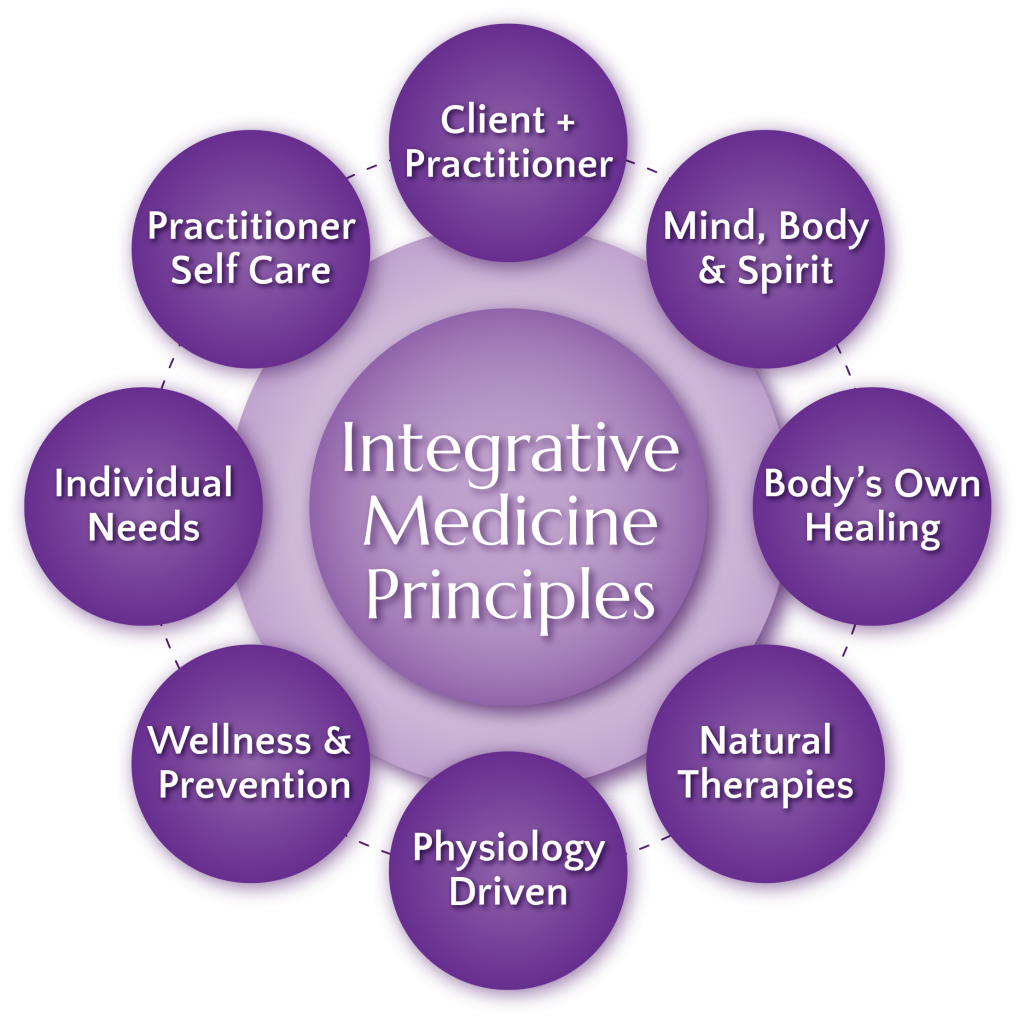Integrative Health And Wellness
What is Integrative Health and Wellness?

Source theflourishcenter.co
Integrative health and wellness is a holistic approach that considers the overall well-being of an individual, including physical, emotional, mental, and spiritual aspects. This approach goes beyond just managing symptoms and focuses on addressing the root causes of health issues. Integrative health combines the best of conventional medicine with alternative therapies such as acupuncture, massage therapy, herbal remedies, and mind-body practices like yoga and meditation.
By treating the whole person, integrative health aims to promote optimal health and prevent future illness. It emphasizes the importance of lifestyle factors such as nutrition, exercise, sleep, and stress management in maintaining a healthy balance. Integrative health practitioners work collaboratively with patients to create personalized treatment plans that take into account their unique needs, preferences, and goals.
Overall, integrative health and wellness offers a comprehensive and individualized approach to healthcare that empowers individuals to take an active role in their own well-being.
Benefits of Integrative Health and Wellness

Source www.gvhealthnews.com
Integrative health and wellness can have a multitude of benefits that contribute to an individual's overall well-being. One of the main advantages is the improvement in overall health that comes from taking a holistic approach to wellness. By focusing on the mind, body, and spirit, integrative health practices can address the root causes of health issues, rather than just treating symptoms. This comprehensive approach can lead to better health outcomes and a stronger immune system.
Additionally, integrative health and wellness practices are known for their ability to reduce stress levels. Techniques such as yoga, meditation, and acupuncture can help individuals manage stress and anxiety, leading to a calmer and more focused mindset. Lowering stress levels has a direct impact on physical health, as chronic stress has been linked to a variety of health problems, including heart disease, obesity, and diabetes.
Another key benefit of integrative health and wellness is the enhancement of the body's natural healing abilities. Many integrative health practices, such as chiropractic care, massage therapy, and nutritional counseling, focus on supporting the body's innate ability to heal itself. By promoting balance and harmony within the body, these practices can boost the immune system, improve circulation, and accelerate the healing process. This natural approach to healing can lead to long-term health benefits and a reduced reliance on medications.
In conclusion, embracing integrative health and wellness can have a profound impact on an individual's overall health and well-being. By addressing the mind, body, and spirit in a holistic way, individuals can experience improved health, reduced stress, and enhanced natural healing abilities. Taking a proactive approach to wellness through integrative health practices can lead to a healthier, happier life.
Common Practices in Integrative Health and Wellness

Source englintonmedical.com
One of the most common practices in integrative health and wellness is acupuncture. Acupuncture is a traditional Chinese medicine technique that involves inserting thin needles into specific points on the body to promote healing and relieve pain. It is often used to treat various conditions such as chronic pain, migraines, and anxiety. Many people find acupuncture to be a relaxing and effective treatment option for a wide range of health issues.

Source www.thetemplelodge.com
Yoga is another popular practice in integrative health and wellness. Yoga combines physical postures, breathing techniques, and meditation to improve mental and physical well-being. It can help reduce stress, increase flexibility, and promote relaxation. Many individuals incorporate yoga into their daily routine to maintain a healthy lifestyle and enhance overall wellness.
Source www.billepperly.com
Meditation is a mindfulness practice that involves focusing the mind and calming the body to achieve a state of relaxation and inner peace. Meditation can help reduce stress, improve concentration, and promote emotional well-being. Many people practice meditation regularly to enhance their mental clarity and overall sense of calmness.

Source mtcbr.com
Massage therapy is a therapeutic technique that involves manipulating the soft tissues of the body to alleviate muscle tension, improve circulation, and promote relaxation. Massage therapy can help reduce pain, enhance mobility, and promote overall well-being. Many individuals seek out massage therapy as a way to de-stress and rejuvenate both their body and mind.
Key Principles of Integrative Health and Wellness

Source theflourishcenter.co
Integrative health and wellness is a holistic approach to healthcare that focuses on the importance of treating the whole person, rather than just the symptoms of a specific illness or condition. This approach emphasizes the interconnectedness of the body, mind, and spirit, and aims to promote overall well-being and balance in all aspects of life.One of the key principles of integrative health and wellness is the importance of prevention. Instead of waiting until a health issue arises, integrative medicine encourages individuals to take proactive steps to maintain their health and prevent disease. This may include adopting a healthy diet, engaging in regular exercise, getting enough sleep, and managing stress effectively.Another key principle of integrative health and wellness is the concept of self-care. This involves taking responsibility for one's own health and well-being by making informed choices about lifestyle habits, diet, exercise, and stress management. Self-care also includes seeking out resources and support to help individuals make positive changes in their lives.The mind-body connection is also a fundamental principle of integrative health and wellness. This recognizes that our thoughts, emotions, beliefs, and attitudes can have a profound impact on our physical health. By addressing mental and emotional well-being, individuals can improve their overall health and well-being.Integrative health and wellness also emphasizes the importance of individualized care. This means that healthcare providers take into account each person's unique circumstances, preferences, and goals when developing a treatment plan. This personalized approach helps ensure that the individual receives the care and support that is most appropriate for them.Overall, the key principles of integrative health and wellness stress the importance of treating the whole person, focusing on prevention, encouraging self-care, and recognizing the interconnectedness of the body, mind, and spirit. By adopting these principles, individuals can achieve optimal health and well-being in a holistic and sustainable way.
How to Incorporate Integrative Health and Wellness into Your Life

Source theflourishcenter.co
Integrative health and wellness can be seamlessly integrated into your daily routine by adopting healthy lifestyle habits, exploring various holistic therapies, and seeking guidance from integrative health professionals. Here are some practical ways to incorporate integrative health and wellness into your life:
1. Start by prioritizing nutrition and incorporating whole, nutrient-rich foods into your diet. Consuming a balanced diet that is rich in fruits, vegetables, lean proteins, and whole grains can provide your body with the necessary nutrients to thrive and maintain optimal health.
2. Engage in regular physical activity to support your overall well-being. Exercise has numerous benefits, including improving cardiovascular health, boosting mood, and reducing stress levels. Find a form of exercise that you enjoy, whether it's yoga, running, swimming, or dancing, and make it a regular part of your routine.
3. Practice mindfulness and stress-reduction techniques to promote relaxation and emotional well-being. Mindfulness practices such as meditation, deep breathing exercises, and yoga can help you manage stress, improve focus, and enhance self-awareness. Carving out time for these activities each day can have a profound impact on your overall health.
4. Explore different holistic therapies such as acupuncture, massage therapy, and chiropractic care to address any physical ailments or imbalances in your body. These alternative treatments can complement conventional medical care and provide relief from pain, improve circulation, and promote overall wellness.
5. Consult with integrative health professionals, such as naturopathic doctors, functional medicine practitioners, or holistic nutritionists, to receive personalized guidance and support on your health journey. These experts can help you identify underlying health issues, create customized treatment plans, and offer holistic solutions to improve your overall well-being.
By incorporating these strategies into your daily routine, you can cultivate a holistic approach to health and wellness that addresses your physical, mental, and emotional well-being. Remember that wellness is a journey, and it's important to prioritize self-care and listen to your body's needs along the way.
Posting Komentar untuk "Integrative Health And Wellness"